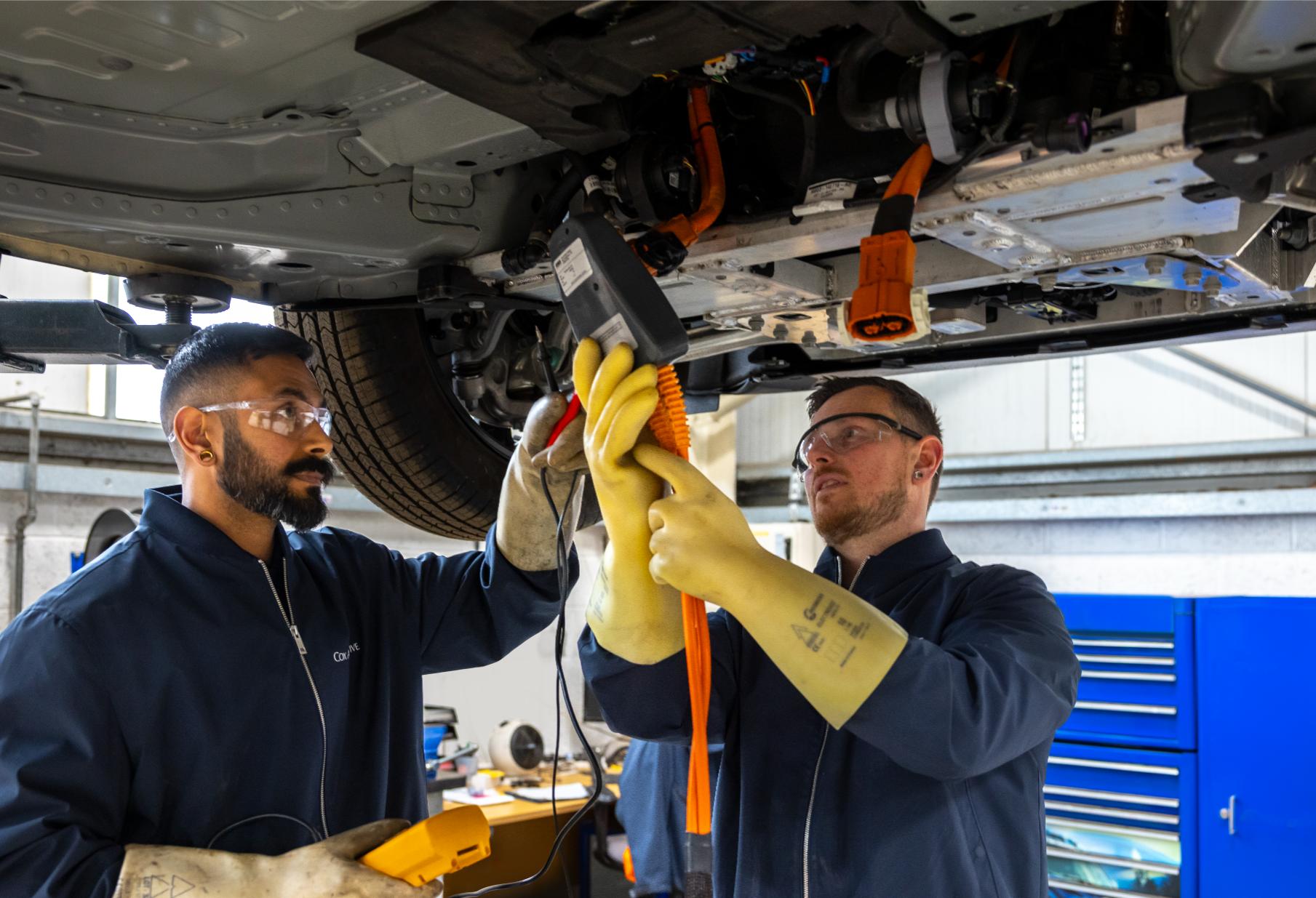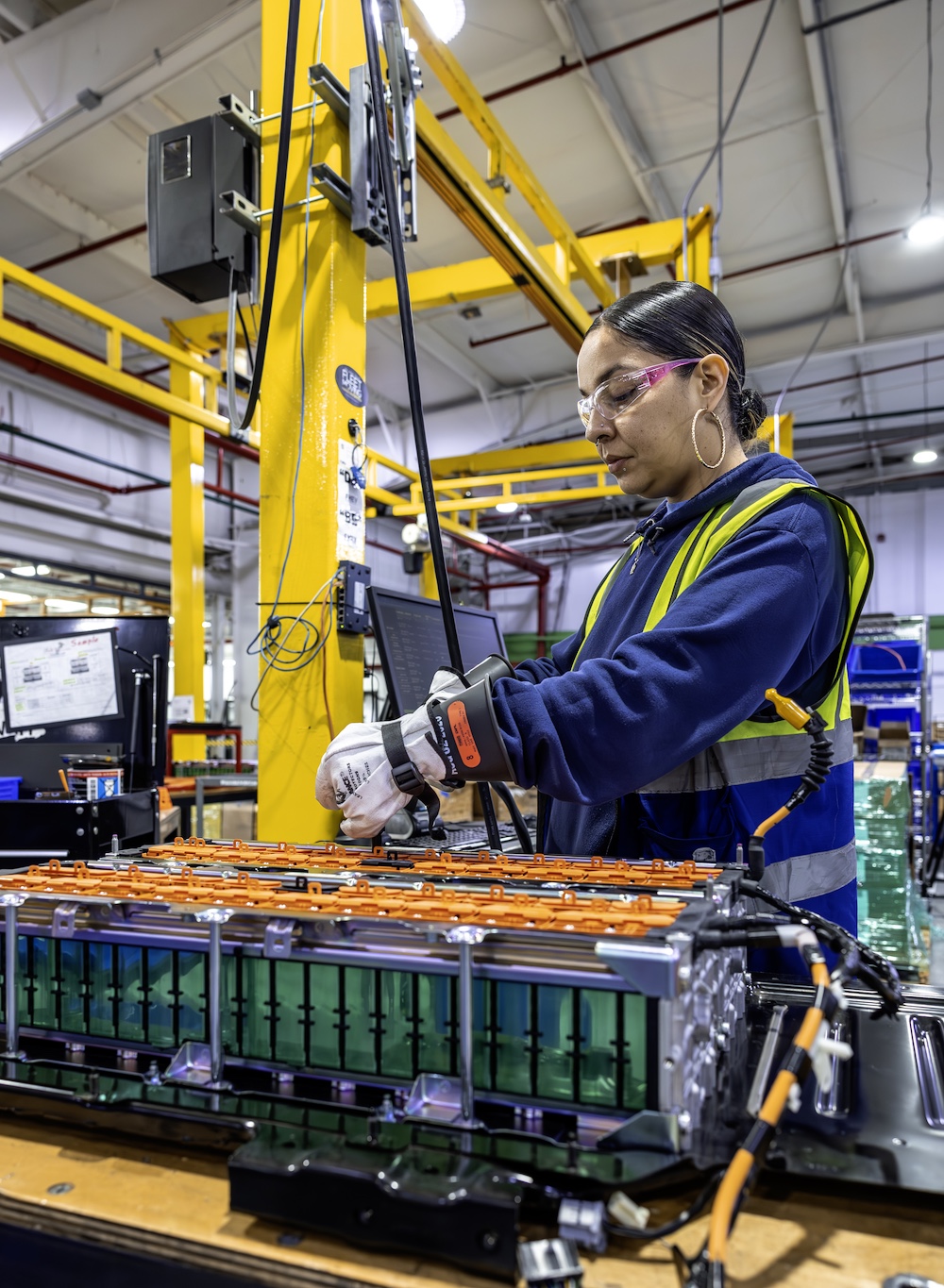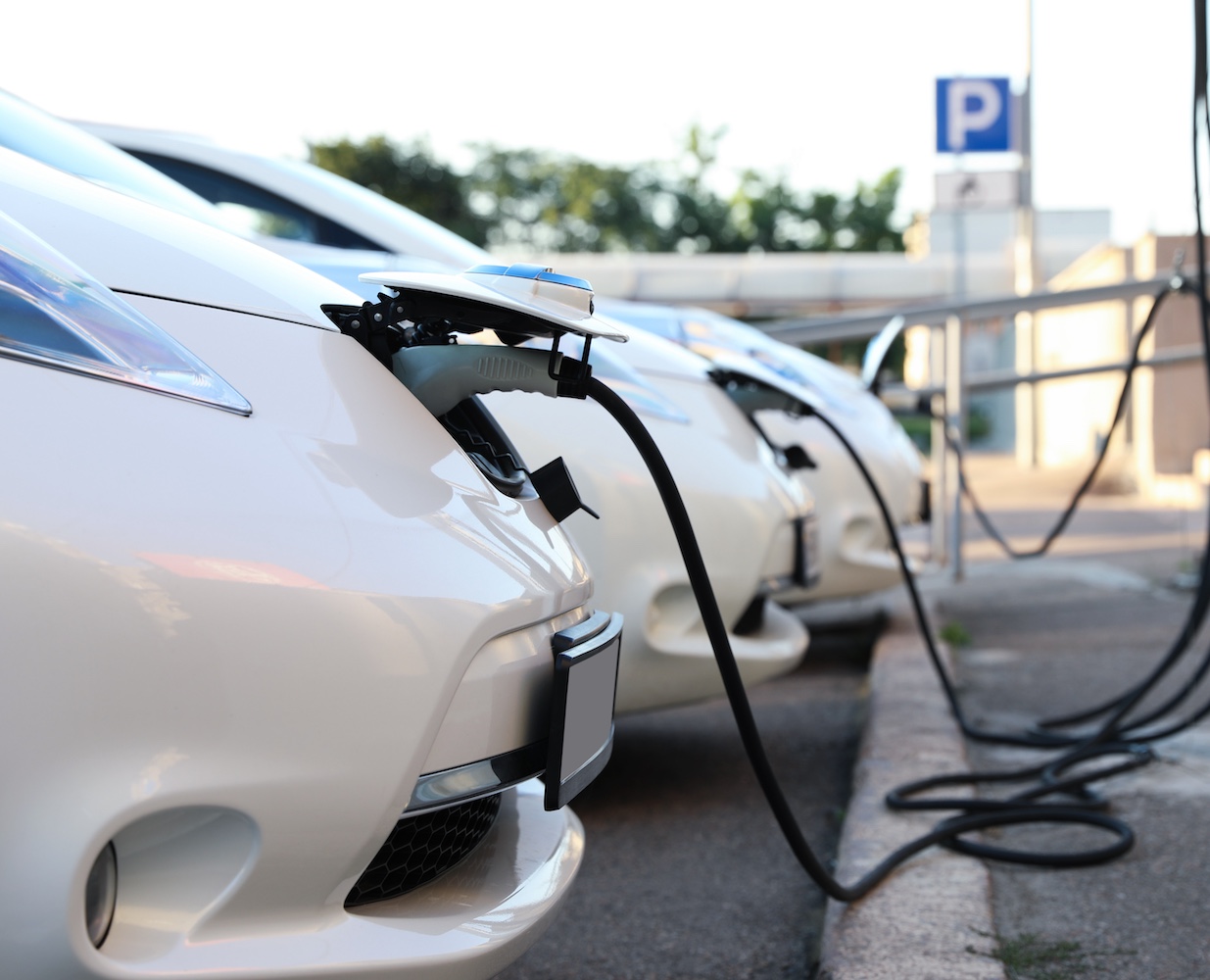EV technician shortfall: the hidden impact of Covid
By Erin Baker
The pandemic was responsible for a lot of problems in the automotive industry, but one was left in the shadows while everyone concentrated on the shortage of chips, parts and components in the supply chain, and it was the shortage of humans, specifically apprentice technicians.
Discover more content...
UK’s technician shortfall
The Institute of the Motor Industry (the IMI) says that we may have lost 16,700 apprentice technicians as a result of Covid. No one could start their placements or on-the-job training due to social distancing and shutdowns, and there was the economic uncertainty faced by employers which made them reluctant to take new starters on. A Sutton Trust Covid-19 report quoted by the IMI showed that 36 per cent of apprentices were furloughed, eight per cent were made redundant and 17 per cent had their training suspended for a year.
That shortfall, an IMI report says, will take a worrying 16 years to recoup, and we won’t reach pre-pandemic apprenticeship levels until 2031.
All of which sounds like a nightmare, but one which has little bearing on your average consumer, who isn’t connected to the industry but just wants to buy and drive a car.
And yet, that conclusion is wrong: the ramifications of this skills shortage affect pretty much everyone. Without technicians, car repairs become harder, which means cars are off the road for longer, which drives up insurance premiums for drivers. Without technicians, the UK’s automotive research and innovation risks grinding to a halt, and vital skills could be lost to history.
Which of your children has heard – for better or worse – of British Leyland, or Rover? Or know that Henry Royce, of Rolls-Royce fame, was one of the world’s first electrical engineers? Or that a Brit invented the first iteration of the lithium-ion battery?

Why apprenticeships matter
I mention these things not because they are all shining examples of talent necessarily (Leyland became a shining example of rust), but because they were seminal moments, and a generation later, they are all but forgotten. Ergo, the ephemeral nature of talent means you have to fight hard to keep its spirit alive. And that means nurturing and developing apprentices, the majority of whom are under 19 years old when they enter their placement in the UK’s automotive industry.
This situation is worrying enough, but with the rise of electric cars, the pressure to induct and train apprentices in the technician sector has increased exponentially. It’s not just the battery cells on board which require diagnostics, health certificates, repairs, remanufacturing, and ultimately recycling, but also the more complicated software and ravenous number of microchips per car. As the IMI states, “Now, more than ever, as the automotive industry grapples with rapid advancements in technology and a shift towards sustainable mobility, there’s a pressing need for professionals who are both knowledgeable and adept in practical applications.”
The good news is that as EV sales grow (and they are, thanks to favourable used-car pricing, an influx of sub-£25,000 new EVs coming from Leapmotor, Dacia, Volkswagen, Hyundai and Renault, competition from the Chinese and the ZEV mandate forcing brands to discount), the industry becomes more appetising again for technicians.
More money is available to launch training schemes, more pressure is applied to Government to support apprenticeships, and more capital investment comes into the arena from exciting global brands like EV Battery Solutions, that bring their scale and decade-long knowledge of battery repairs and remanufacturing to the UK.

Addressing the battery repair skills gap
So how far have we got to go to ensure British drivers don’t need to worry what happens when their battery needs a repair or diagnostics? The IMI’s EV TechSafe Technician Forecast April update shows the UK now has 64,700 qualified EV technicians; about 26 per cent of the technician workforce. However, projected demand could outpace supply by 29,000 technicians by 2035.
What can we do to hurry more EV apprentices into the industry? I heard Emma Speed, MD of Auto Raise, discuss this at a Thatcham conference recently. Auto Raise is a charity focusing on closing the skills gap in the industry. She spoke about the lack of parental awareness about the positives of apprenticeships: “Most apprenticeships are fully funded or supported by industry schemes, so students graduate without student debt”, she told me. “A career as an EV technician offers stable employment. It’s a hands-on role that combines problem-solving with the opportunity to work on cutting-edge technology, which is appealing for young people. Technicians can progress into senior or specialised roles, and the skills they develop are highly transferable across the automotive and energy sectors”.

EV repair skills could reduce insurance
Dean Lander, head of repair sector services at Thatcham Research, is equally optimistic about what lies ahead for people working in EV battery repair in the UK. “We can create a sustainable, efficient ecosystem where battery repair is possible and preferred by bringing together OEMs, repairers, insurers and training providers. This transition should build a more sustainable future for EVs while creating new skilled opportunities and keeping repair costs manageable for consumers” he told me.
And what of those pesky insurance premiums? We all want to see them coming down as they are currently a major blocker to EV sales. “For the insurance industry, developing these capabilities will deliver significant benefits”, he explained, “including reduced key-to-key times, lower costs for courtesy vehicles, and ultimately more competitive premiums for consumers.”
Clearly, the hope lies in scaling up this entire sector as rapidly as possible. We need the big-guns solutions like what Cox Automotive is doing through EV Battery Solutions investing in huge sites like Rugby, to handle hundreds of batteries at a time, alongside vital charities like Auto Raise to encourage apprenticeship update, and the IMI to back the talent growth.
If ever there was a time when we were all demonstrably in it together, that time is now.

Let's take charge of the future, together
We’re transforming the in-life battery operations of the world’s leading automotive manufacturers. Get in touch to find out how.



